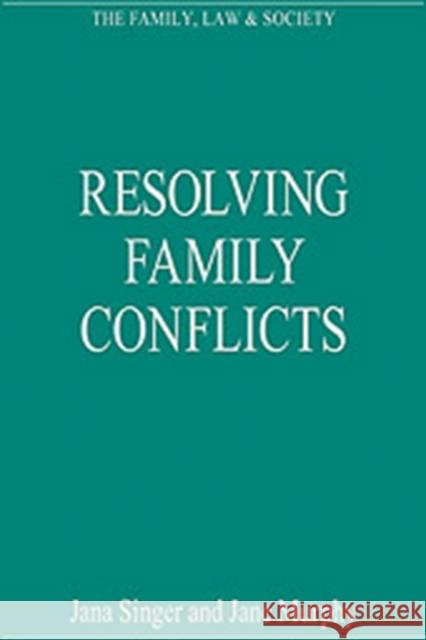Resolving Family Conflicts » książka
Resolving Family Conflicts
ISBN-13: 9780754626596 / Angielski / Twarda / 2008 / 594 str.
Over the past two decades, virtually all areas of family law have undergone major doctrinal and theoretical changes - from the definition of marriage, to the financial and parenting consequences of divorce, to the legal construction of parenthood. An equally important set of changes has transformed the resolution of family disputes. This 'paradigm shift' in family conflict resolution has reshaped the practice of family law and has fundamentally altered the way in which disputing families interact with the legal system. Moreover, the changes have important implications for the way that family law is understood and taught. This volume examines the contours of this paradigm shift in family conflict resolution and explores its implications for family law scholarship and practice. The interdisciplinary compilation includes contributions from lawyers, legal academics, social scientists and mental health professionals. As the articles in the volume demonstrate, the transformation in family conflict resolution holds considerable promise for disputing families, but it also raises a number of challenges. These challenges include concerns about the institutional competence of courts, the surrender of fact-finding and decision-making to individuals without legal training, the loss of autonomy and privacy for family members subject to continuing court oversight and the disjunction between problem-solving justice and authoritative legal norms. By exploring both the promise of the new paradigm and its potential pitfalls, this volume engages family law scholars and offers insights to judges, practitioners and policy makers responsible for serving families in conflict.











